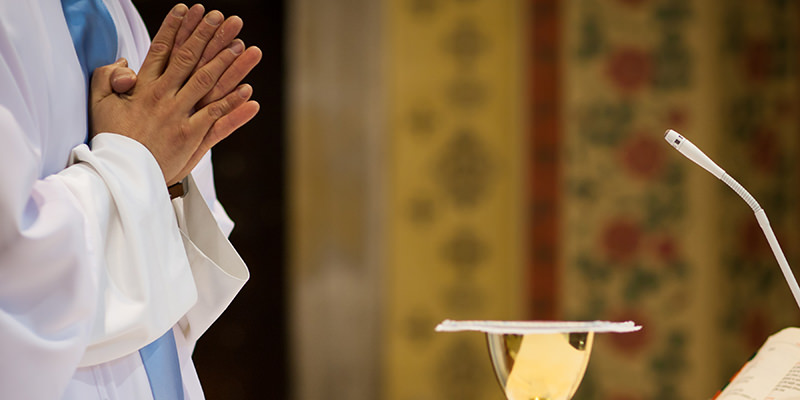Whether you keep up with Papal gossip or keep tabs on potential gridlock nightmares, you probably know the newest Pope is coming to town (and no, unlike his jolly bastardized secular stepchild, he does not see you while you’re sleeping). Starting Tuesday, September 22nd, Pope Francis will be making stops in D.C., New York, and Philadelphia, and while many of us aren’t Catholic, or quite observant, we are observant wine drinkers. And that got us wondering: what the heck (ahem) is sacramental wine?
In case you didn’t know, and there are many reasons you wouldn’t, Catholics drink wine in the course of a traditional mass. And no, it’s not like they’re breaking out booze just as the service starts to lag; it’s integral, actually the most important part of the ceremony. But just what’s in that glass, none of us have really ever investigated (when you’re a 10-year-old kid told to go get in line to drink wine, you just jump up and drink).
Recollections are it tasted sweet, almost like a Manischewitz. But we wanted to know a little more about the wine itself—how it’s made, who makes it, and if anyone ever drinks it, intentionally, as in well beyond church property. Turns out, kind of like Kosher wine, there are some pretty specific rules governing its production. Essentially, sacramental wine has to be made naturally, “from the fruit of the grape, pure and incorrupt”—though raisins are also fair game. “Not mixed with other substances,” though a “small quantity of water” is mixed in during the celebration. It’s also important the wine hasn’t turned into vinegar or soured, and “it is altogether forbidden to use wine of doubtful authenticity or provenance.”
Biggest surprise, sacramental wine can actually be red or white, dry or sweet, even fortified, as long as the source of fortification is also grape-derived, and as long as the ABV stays between 5 and 18%. (This is intended for church, after all.) Once it’s approved by a bishop of the vineyard’s diocese, it can be labelled “sacramental” and sold.
Funny thing is, it’s not just churches looking to buy it. People, plain old drinking sinners, are actually searching for sacramental wine online, basically because they like the taste (and may or may not have lapsed out of the need for religious context). As for where you can buy it, there are several producers. Fresno-based Cribari has been making everything from Haut Sauternes, Chablis, Moscatel, Burgundy, Rosato, Port Wine and more since 1917. And then there’s Napa-based Mont La Salle, who’s not only been making sacramental wine since 1930, but actually saved (in a sense) the flagging California wine industry as it struggled through Prohibition.
Salvation comes in many forms. Just a heads up, Sacramental wine is just wine until it’s blessed.

